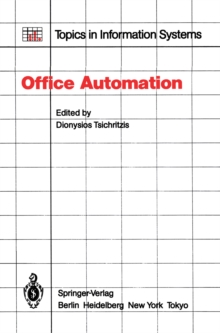
Data Types and Persistence PDF
Edited by Malcolm P. Atkinson, Peter Buneman, Ronald Morrison
Part of the Topics in Information Systems series
Description
There is an established interest in integrating databases and programming languages.
This book on Data Types and Persistence evolved from the proceedings of a workshop held at the Appin in August 1985.
The purpose of the Appin workshop was to focus on these two aspects: persistence and data types, and to bring together people from various disciplines who have thought about these problems.
Particular topics of"interest include the design of type systems appropriate for database work, the representation of persistent objects such as data types and modules, and the provision of orthogonal persistence and certain aspects of transactions and concurrency.
The programme was broken into three sessions: morning, late afternoon and evening to allow the participants to take advantage of two beautiful days in the Scottish Highlands.
The financial assistance of the Science and Engineering Research Council, the National Science Foundation and International Computers Ltd. is gratefully acknowledged. We would also like to thank Isabel Graham, Anne Donnelly and Estelle Taylor for their help in organising the workshop.
Finally our thanks to Pete Bailey, Ray Carick and Dave Munro for the immense task they undertook in typesetting the book.
The convergence of programming languages and databases to a coherent and consistent whole requires ideas from, and adjustment in, both intellectual camps.
The first group of chapters in this book present ideas and adjustments coming from the programming language research community.
This community frequently discusses types and uses them as a framework for other discussions.
Information
-
Download - Immediately Available
- Format:PDF
- Publisher:Springer Berlin Heidelberg
- Publication Date:06/12/2012
- Category:
- ISBN:9783642615566
Information
-
Download - Immediately Available
- Format:PDF
- Publisher:Springer Berlin Heidelberg
- Publication Date:06/12/2012
- Category:
- ISBN:9783642615566










